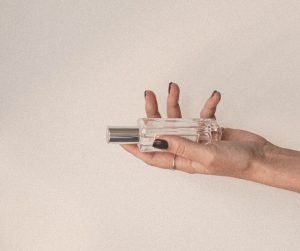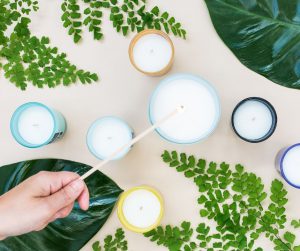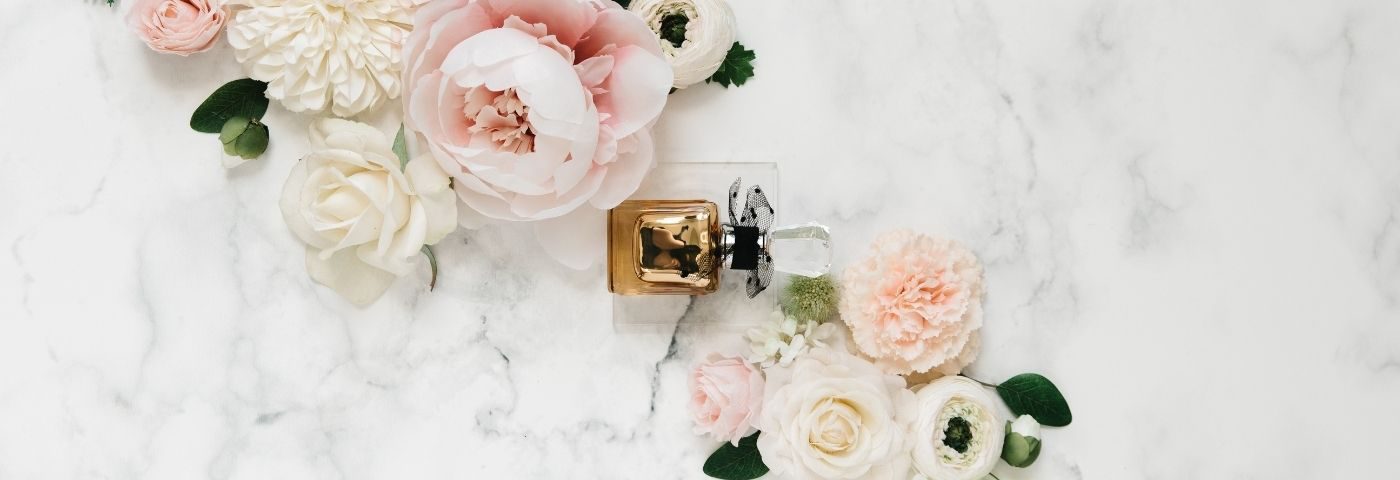For many, the pandemic will leave lasting memories of distinct smells of clinically strong sanitisers and the familiar smell of home. For the unlucky ones that developed symptoms of anosmia – the medical name for loss of smell – the fragrance of the pandemic, or the total lack of, will be remembered in a different way.

Arguably, the events of 2020 affected no beauty sector more than the fragrance and perfume category. At the beginning of the pandemic, vital crops went unharvested as workers were told to stay at home, key alcohol supplies were redistributed for hand sanitisers, and sales of perfumes and fragrances plummeted as people stayed at home, socially distanced and took their shopping online. One report by McKinsey looking at how COVID-19 has changed the world of beauty found that fragrance sales for prestige brands dropped 75% versus the same period in 2019. The sales decline was more significant in fragrance than in any other beauty category. Conversely, an industry once believed to be impossible to sell online saw an uplift in its digital offering. One beauty e-commerce analysis found that online fragrance sales increased by 45% from 2019 to 2020.
As such, the pandemic has of course presented new opportunities for the fragrance industry. “This new situation also brings with it a new business opportunity, as it has driven the creation of products that are now considered essential, such as hand sanitiser gels and face masks: both items in which perfume can be used,” says Laurent Mercier, CEO of Eurofragrance.
This is just a snapshot of the changes in the fragrance industry since the start of the pandemic. Despite a drop in sales, fragrance became far from obsolete for consumers. Instead, its focus and importance in daily routine shifted. One study by Firmenich across 11 different countries including the UK and France found that 56% of consumers appreciated fragrances more during the lockdowns and 56% also took more comfort in the scents they used. “Fragrance reinforces feelings of safety, calm and happiness for consumers dealing with stressful situations. Our latest consumer research shows that the importance of scent for different populations of consumers is growing and can be leveraged by customers to determine fragrance and category mix” explains Ilaria Resta, President of Global Perfumery at Firmenich.
Fragrance as a tool for wellness
Smell is a powerful tool to evoke memories and influence mood. But for thousands of years scent has also been used in therapeutic ways. “Broadly speaking, what we have discovered during lockdown is there is a very strong message from consumers that scent is an agent of wellness,” says Judith Gross, Vice President of Creation and Design, Branding and Marketing at the IFF, a company that has been conducting consumer research on attitudes to scent since the start of the pandemic.
Jason Lee, founder of the fragrance label, SIX agrees: “Instead of luxury goods, people are channelling their money into things that will make them feel and live better while at home. COVID-19 has forced us to focus on the emotional and psychological, and people now realise fragrance plays an important role in our wellbeing”.
As the concept of wellbeing and good health has now filtered into all categories from food, beauty and body care to the home, it opens up an interesting direction and an abundance of new opportunities for the fragrance industry. “It seems that the act of putting on perfume goes beyond attracting others; it now incorporates this new concept of ‘wellness’ that consumers are asking for,” says Laurent Mercier.
Home is where the smell is
One trend that has accelerated this past year is the beautification of the home – proof that modern beauty is much more than skin deep. With months of monotonous lockdowns and little variation to routines and scenery, consumers have been looking for ways to improve their mental health and wellbeing within the home, including through fragrance. “Each space becomes even more important when you’re spending more time at home, from the living room to the bedroom or the bathroom,” says Julien Gommichon, US President of Diptyque.
Margaux Caron, Global Beauty Analyst at Mintel adds: “Even pre-COVID there was an interest to pair and compliment and emulate personal fragrance with your home fragrance. Integrating into consumer lifestyle needs to be reinvented, and it’s the right time to diversify and reinvent the category”.

Alongside traditional fragrance and perfume sales, once ancillary fragrance offerings such as candles or diffusers are now firmly in the spotlight, keeping many brands afloat. “While everyone is staying at home, people are stocking up and ordering candles online. Candles provide a sense of comfort and calm during this challenging time” says Julien Provost, Global Creative Director for Cire Trudon. And this is reflected in the numbers; research by NPD found that candle sales grew 17% in comparison to a general category increase of 9% year to date. Elsewhere, Selfridges reported a 54% increase in candle sales since the start of the lockdown, and Net-a-Porter recorded a 130% year-on-year increase from when the first UK lockdown began in March. “These are little luxuries that people are treating themselves to in order to create a cosier, spa-like environment at home,” says Larissa Jensen, VP and Beauty Industry Advisor at NPD.
Many brands have responded to this shifted focus to the home and need for improved wellbeing amid the pandemic. NEOM Organics, for example, launched a campaign called ‘Little Moments of Wellbeing’ in 2020, encouraging its customers to take moments to pause, reset and feel good through its range of fragrant candles, body lotions and oils.
And for those that don’t want to burn candles, at-home technology is coming into play. Just last month, Skin Authority debuted its consumer-facing air filtration device, Air Beautification Filtration & DefenderPro, which was previously only available to professionals within salons and spas. Elsewhere, Canopy also launched a beauty-focused air humidifier at the end of last year. And mere months before the pandemic took its grip, NEST fragrances announced the launch of its Smart Home Fragrance Diffuser in partnership with Pura, an innovative smart home fragrance company. The on-demand home fragrance diffusion device can be controlled by a smartphone including adjusting the intensity, switching between fragrances and creating a customised schedule.
The future of fragrance
So, what is set for the future of the fragrance industry? “Many consumers will still be working from home, which will support home fragrance, but the lift in candles may taper slightly,” says Katie Thomas, who leads the Kearney Consumer Institute, an internal think tank at global strategy and management consulting firm, Kearney. She adds: “Luxury and traditional perfumes will demonstrate ongoing recovery as restaurants and stores reopen and consumers can increase their activities outside the home”.
Indeed, there is widespread agreement that the events of the past 18 months have significantly changed the fragrance and perfume industry. “COVID-19 is really the big driver behind the whole trend of functional fragrance now, it’s the big catalyst and I expect to see it more in the developed markets,” says Jason Lee.
Since restrictions have started to lift, the fragrance industry has already seen an uplift in sales. In the first quarter of 2021, prestige fragrance sales rose by 45%. And according to NPD Group, brands like Estée Lauder have reported strong sales for high-end fragrances like Jo Malone and Le Labo. As we emerge into the new normal, brands will need to continue to reflect the changing needs of their customers. The pandemic won’t last forever, but some aspects of the changed fragrance industry are likely to be here to stay. As said by Donagh Quigley, Founder of The Handmade Soap Company: “This pandemic will pass. Life might be slightly different, but people will still want their homes to smell beautiful”.
Interested in finding out more about fragrance?
Take a look at why fragrance might have become a “dirty word” here.

